Earlier this morning on Twitter, I saw a tweet directed at TCM’s Ben Mankiewicz, accusing him of being “SJW” (the abbreviation for Social Justice Warrior, a derogatory term for a person who engages in left-wing ideology for personal gains) because he condemned the Hollywood blacklist on air. The response was immediate and mostly indignant, defending Mankiewicz and TCM against accusations of a political agenda. But this is not an isolated incident–for the past 6 months or so, the Turner Classic Movies social media accounts have been inundated with viewers telling the channel to “stick to the movies,” that TCM is a place where people come to escape from politics, and that TCM is trying to brainwash its viewers into a left-wing political agenda.
It is a disturbing trend. Given our current political climate and efforts to restrict public access to information, television viewers have fallen down a rabbit hole of misinformation. We have found ourselves in a dystopian world where we don’t know what is true and what is not, and historical context seems to matter little. Perhaps most disturbing, we have begun to see it reflected back in the anti-intellectualism that has become part of the American landscape. We are a country that is scared, wanting to retreat somewhere. History has not changed–but our collective reaction to hearing it has.
Dalton Trumbo gives his testimony in front of the House Un-American Activities Committee.
2017 is the 70th anniversary of the Hollywood blacklist. Due to fear of communist infiltration from Russia seeping into American life, in 1947 the House Un-American Activities Committee targeted members of the film industry for alleged communist activities, asking them not only to divulge their own political allegiances, but also to name others. Prison sentences, ruined careers, and suicides were commonplace as the government manipulated public fear to destroy lives…and secure their own re-elections.
The actions of the HUAC (and its counterpart in the Senate, the Senate Internal Security Subcommittee) cost lives and careers, during a time of paralyzing fear. For TCM to ignore those actions in the name of “sticking to the movies” would be misguided at best, and promoting ignorance at worst, especially in our current era.

Choreographer Jack Cole, spotlighted last month on TCM’s tribute to gay Hollywood, works with Marilyn Monroe on the set of Let’s Make Love, 1960.
Fortunately, TCM holds itself above that. As the only channel on national television to provide historical context to classic movies, it does important work in tearing down the myth of blind classic movie nostalgia, and as such, it has received its share of ignorant commentary from those who don’t want to hear it, preferring to live in a world where the whole story is not told. Last month, the channel did a month-long spotlight on LGBT figures in Hollywood, and how they shaped the industry as a whole. As I followed their posts on the Facebook page, I saw comments coming in that followed a few standard blueprints:
“I don’t pay extra for cable to have TCM brainwash me into a political agenda.”
“When are they going to have Straight Hollywood Month?”
“Look at the guests they have on–TCM has become a bunch of lefties.”
“Why don’t they just stick to the movies? I come to TCM to escape from politics.”
Each of these statements merits its own lengthy blog post, but in regard to the final one, I fear that people are watching TCM with a warped and shallow view of classic movies. Classic Hollywood was not created in a vacuum. Far from the ideal utopian world that many seem to think they’re retreating into, classic movies were affected by a world outside that was often in chaos. Hollywood was built by strong, talented, and assertive women and minorities, fighting to get the representation they deserved in a society that shunned them. Far too often, in the name of nostalgia (a concept that I find dangerous), the true history of Hollywood gets lost. TCM brings it back, and I am so grateful that they do.

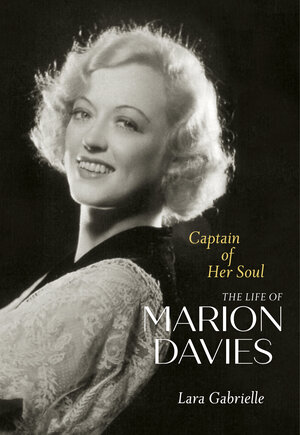


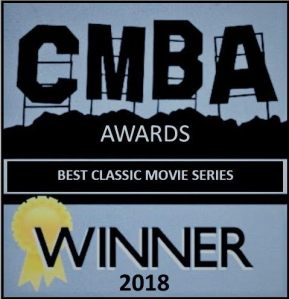



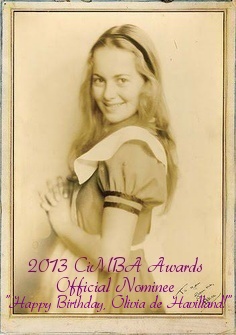









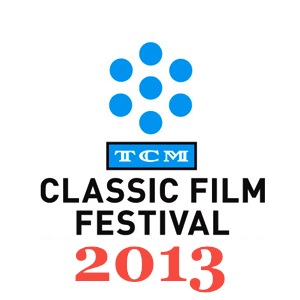



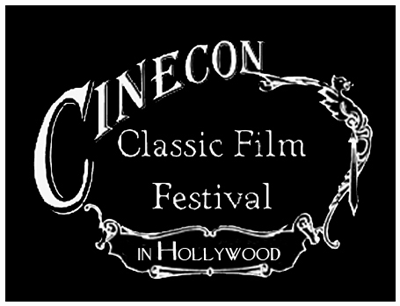




_03.jpg)
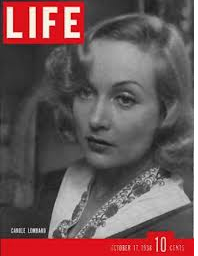

I think you’re right, for the most part(although, as a retired teacher of both history and English, I wish you and others using the word “dystopian” so much would take a few minutes to read the actual definition of that word to realize how ridiculous its usage is even in a Trump presidency). However, as a woman of color, I think TCM has seriously dropped the ball when it comes to minority outreach and I think white bloggers and white TCM fans have done literally nothing to speak to this. For every “Star of the Month” we get one person of color if we’re lucky. And I wish the TCM Film Festival(which I love going to each year but honestly, is nothing but a sea of white faces) would do more to advertise to budding classic movie fans of color. Like maybe having some of the festival in theaters in urban neighborhoods. I mean, it would be nice to hear about things like the product and impact of Lincoln Motion Pictures outside of the context of black history month (which even some of the most dedicated white TCM fans have never heard of, let alone most young people of color, unfortunately). TCM has barely paid lip service to POC in the 20 years I’ve been watching the channel. If we’re going to talk about the political realities of being a classic movie fan in 2017, then we REALLY need to be honest about ALL of the problems and not just the fans who rub you the wrong way politically. And to be clear, I’m not accusing TCM fans of being racist. Just of spending too much time in a very comfortable, very white, near impenetrable cocoon of privilege that poc have a hard time entering.
I’m proud of TCM AND Ben for providing this background. These people would have been cheering McCarthy on back in the day. Anyone who follows Ben on Twitter knows his personal beliefs. And unlike in the 1950s, when Republicans made up the majority of the voting public, things have changed. Only a small set of troglodytes now support the administration in charge. The majority of the country (and the rest of the world) are depending on us to set things right, just like Edward R. Murrow did years ago.
Thanks for your reply. Dystopian: relating to or denoting an imagined place or state in which everything is unpleasant or bad, typically a totalitarian or environmentally degraded one.
“the dystopian future of a society bereft of reason”. I think it very much fits.
As to TCM and people of color, I agree with you. That’s a whole other issue. My point here is about retreating into nostalgia–and as I noted in the post, people of color helped to build what we think of as classic Hollywood, and TCM could do more. I don’t mean to build them up as infallible. As to the Fest, cost has a lot to do with the demographics that they get–older, white, socio-economically wealthy.
“Nostalgia” has become a sort of religion for some, and like religion, is something I consider a personal matter. It is not for nostalgia alone that I love classic films. Classic films have much to teach us about history and relationships. Classic films give us creativity to admire, and which may inspire. I do not retreat into classic movies, I grow from the experience.
I find it surprising and discouraging that some feel threatened by the facts of our world, past and present. It is also unsettling that they would lash out at the network and personalities in such a manner.
“Far from the ideal utopian world that many seem to think they’re retreating into, classic movies were affected by a world outside that was often in chaos.”
Yes! Perhaps there is a connection to Ben Rowen’s piece on the the perils oc nostalgia in last month’s The Atlantic, The End of Forgetting (Part 3: Backing Up Your Memories):
“Another difficulty is that memories, especially nostalgic ones, shift over time. ‘What you recall is confabulated, made up,’ Gallant told me. “Even if you can make a faithful reconstruction of a memory you decode from the brain, that memory is already wrong.'”
Wow, that’s mindblowing! Yes, I think it’s definitely related. It’s difficult for me to hear people say things like “Wouldnt it be nice to go back to [insert decade here]?” It feels shortsighted and uninformed of the problems that are intrinsic to any given decade.
Thank goodness TCM does give a historical background! I have enjoyed the films so much more because of it. It also has me researching names, dates, and all things relative on the web and IMDB. I have been shocked to see some things in films from the Thirties and intrigued to see how everything changed with The Production Code in decades to follow only to swing the other way as the the Sixties and Seventies rolled in. Seeing films such as “The Children’s Hour”, “Johnny Belinda”, “In The Heat Of The Night”, “Cat On Hot Tin Roof”, “Bad Day at Blackrock” and “Guess Who’s Coming to Dinner” had shocking aspects that made me think and appreciate the brave creativity and talent of the original author, subsequent screen play, efforts of the director and producer, and brilliance of the cast. Especially since often times those involved, whether the Studio or actors, may not have agreed with or held the same personal beliefs of any social commentary or topic of the film. TCM isn’t involved in politics. If it feels like politics, maybe skip the pre or post commentary by using the button on your dvr. There certainly were differences in opinion and personal beliefs on the set whether it was John Wayne, Hepburn, Garbo, Joan Crawford, Betty Davis, Jane Wyman, Loretta Young, or Sidney Poitier. Fantastic article. Thank you!
Yes, it’s really important that these movies be put into their proper historical context. There were political differences on the set, but by and large everyone respected each other’s differences. Thanks for the comment!
I personally think that a lot of the backlash from those who only see the movies as ‘entertainment’ or ‘an escape from reality’ is centered in how people have been conditioned to look at the movies. For me they are the literature of our times, reflecting a society to and back at itself, something like a two-way mirror. Like print (with which they are much too often compared) they have their own rules of engagement, their own language, punctuation and unique method for story telling. Sadly however, outside of more scholarly circles, the average film goer has no idea that the movies, like books are social commentaries that are reflective of ones society; its priorities, ethics, morals and politics, Instead (and especially today) they are there only to be trivialized, to be given a specious thunmbs up/thumbs down response immediately after viewing. Freshly scrubbed, often blow-dried hair television reviewers sally forth with their shallow, cynical takes on what they have just seen without first (a) putting in any time for serious reflection about the latest release up for discussion and (b) even if they were to do so, they would probably be replaced because they would be considered too ‘arty’ or ‘over the heads of average viewers.’
Of course none of the above should be particularly surprising. Hack newspaper reviewers (maybe in part ot please their editors) have been doing it for years, ditto hack radio voices.
Hopefully the day will come when the movies, like fine literature or theatre will be recognized as a legitimate artform with its own catalogue of superstars a la William Shakespeare, George Bernard haw, harles Dickens, Thomas Hardy, John Steinbeck, Tennessee Williams, Eugene O’Neil, Edward Albee, Helen Hayes, Sarha Bernhardt, Vivien Leigh, Laurence Olivier – the list is endless. Right now John Ford, Howard Hawks, William Wyler, Orson Welles, Robert Siodmak, Billy Wilder, Steven Spielberg, George Lucas, Andred DeToth, Robert Bresson and countless screen actors are only truly recognized by a pretty small handful. But then again motion pictures are still only in their infancy, and these things take time.
Very thoughtful response,thank you so much for reading and replying. I agree with your points. I think a lot of it has to do with the accessibility of movies–if we still lived in the days when people would dress up to go to the cinema and revered the novelty of the art form, perhaps people wouldn’t be so cavalier in their responses.
So am I! I’ve loved TCM since it began and have watched it every chance I get eager to learn the backdrop history on classic movies and the stars, producers, and directors, studios independent or not who made the movies and its culture apart of history. I’ve learned about a black director named Micheau (I may not have spelled his name right). But as a black American I’m proud to learn how he made his mark while on poverty row making fine movies that are a credit to our community. Keep reporting LBGT history in the 🎥 movies and the contributions these people have made. Keep reporting about the House on Unamerican Activities it destroyed the life of my favorite actor John Garfield and many others. I’m happy Dalton Trumbo persevered and was able to carve out a second career. I hate what was done to Vincent Minnelli and his career like many more. Don’t ever stop being political, historic, and continue to be a beacon of light that educates and connects the past to the present for the future always! TCM is needed!!!
Thank you so much for reading and for your thoughtful comment. I hope they continue to be political too, because there’s no other way to present movies that were made during very political times!
Thank you for posting this! I had no idea that TCM was under fire from those who would shun meaningful discussion. My question is, did these right-of-center people post those comments when Robert Osborne was the face of TCM? TCM has always been interested in discussing historical, and even controversial topics in a fair, intelligent and even-handed way. All I can say is, don’t ever change, TCM.
A good, sensitive, and thoughtful response to the kind of thoughtlessness that prevails on social media and is starting to spill over into the real world of politics. I still think that there is some room for historical revision of the standard story of the Communist Party in Hollywood, work that was begun with Lloyd Billingsley with _Hollywood Party_ (2000), but this represents intelligent historical debate, not the silencing of other viewpoints.
Thank you so much for your kind words. Everything deserves debate and there are multiple sides to every story–another thing that I think gets lost in today’s world of good vs bad with no room for gray areas. Thanks again, I’m so glad you enjoyed and appreciated.
Great blog. I have noticed this and it is a serious problem. Is it just me or has anyone else noticed the call to action “Join the TCM Backlot! Now For a Greater Good” FREE Tee C’mon you know you want it and all the footage consists of the same group, strange huh? or “Join the Wine Club”. “Call to Action- Let’s Movie” Oh please. If you pay for cable, you shouldn’t be bombarded with propaganda, especially network specific propaganda. If need be TCM should sell ad space. Not to mention the guests have become more and more liberal, a ton of NBC affiliates. Social agenda themes. Something has definitely changed. The vibe and presentation of TCM has changed post mid 2015. Another issue is the vignettes music choices, some of it is just plain awful. Lastly the issue is the most horrific of all; Unbeknownst to most viewers, many of the films are being recut, remixed, remastered and digitized non-authentic to the original, which I suspect is ‘optimization for TV’ downgrade from cinema. I can’t prove it with any specific examples but its there.Would love to hear others takes.
You are so right about the importance of historical context. It occurs to me that, using the same logic of keeping politics out of TCM’s programming, we would lose a hefty percentage of, for example, all-time favorites: _Gone with the Wind_, The Searchers_, _Casablanca (what are Nazis if not political), _The Grapes of Wrath_, _The Bishop’s Wife_ (yikes, Christmas AND religion!). As you point out, these films did not spring up in isolation from world events. Debate, I’m afraid, may have been replaced by simply shutting down any discussion whatsoever. And that, for me, is the most terrifying trend of all.